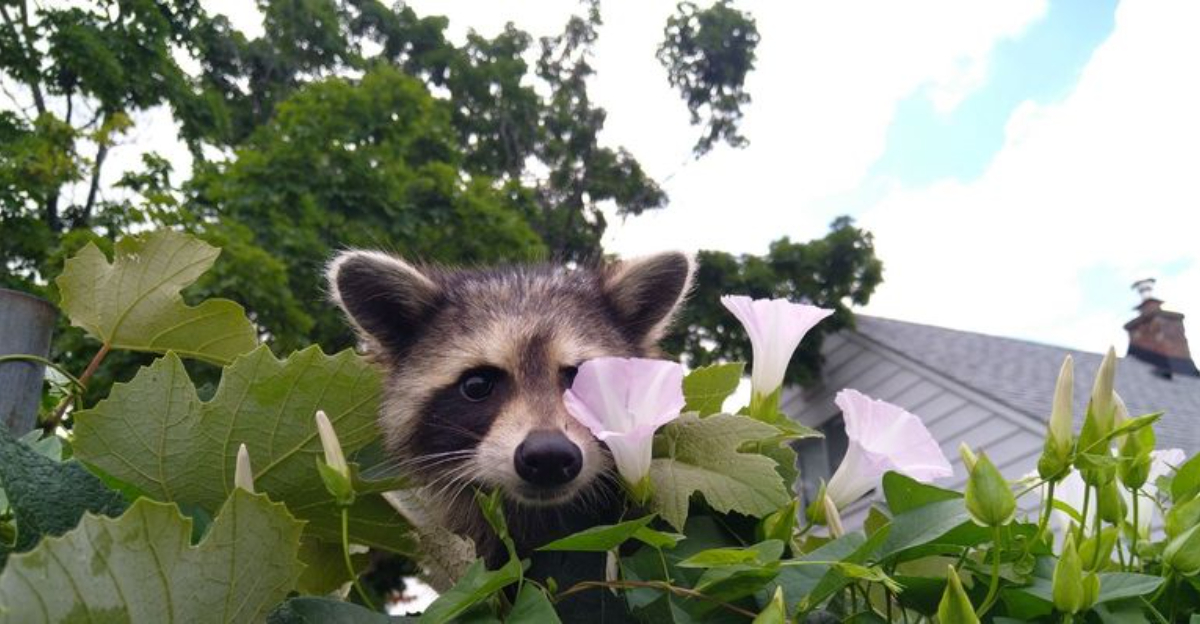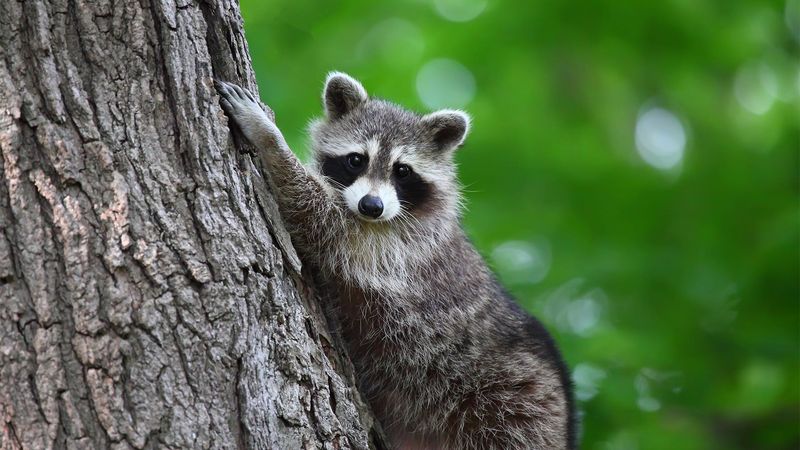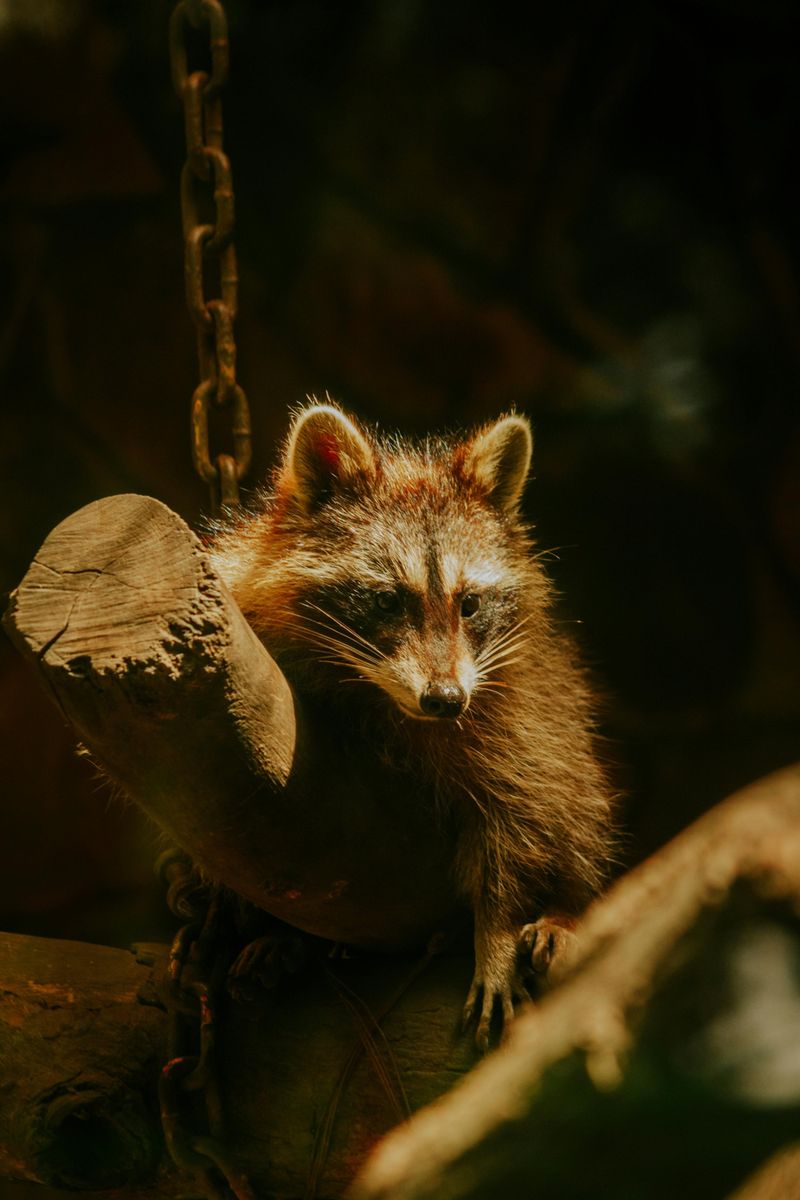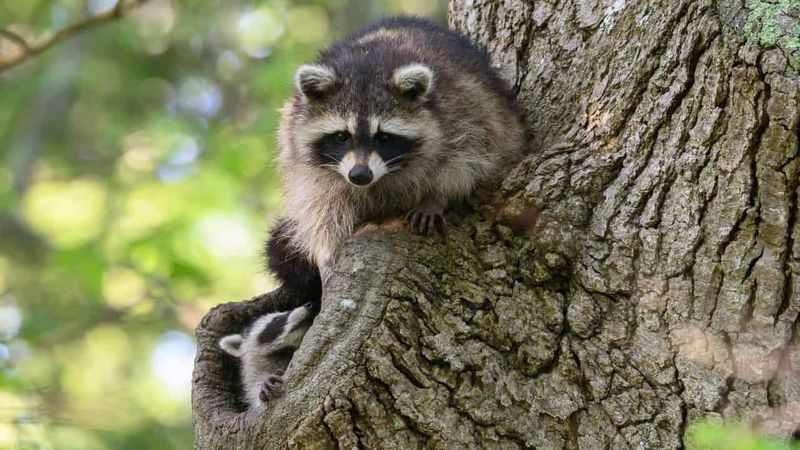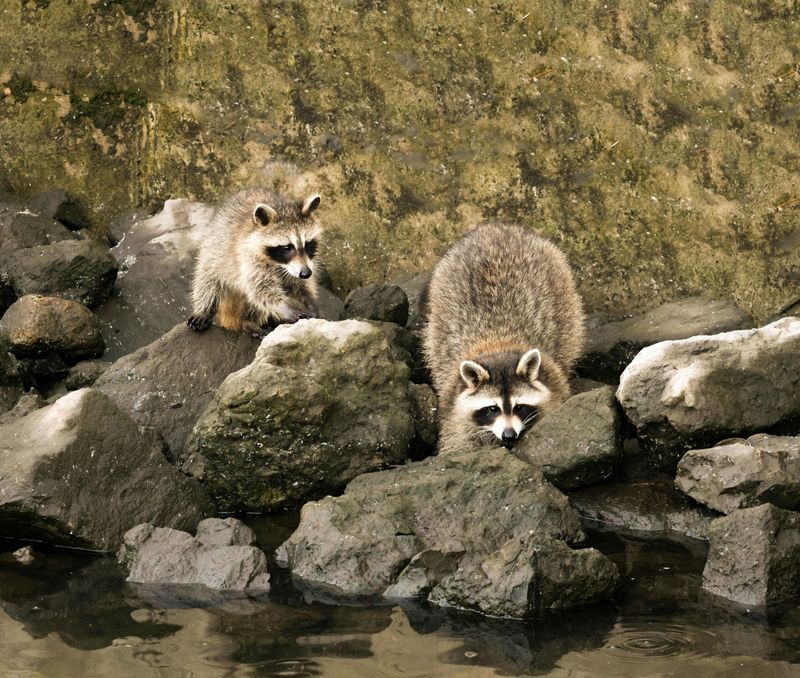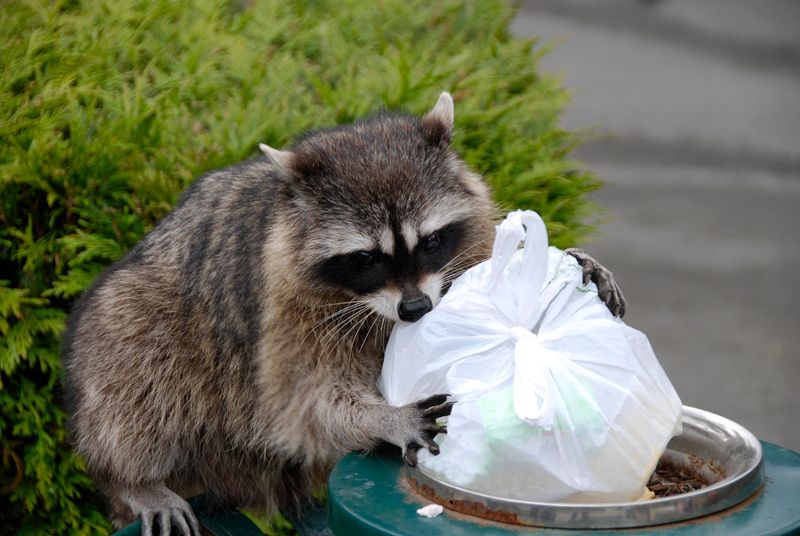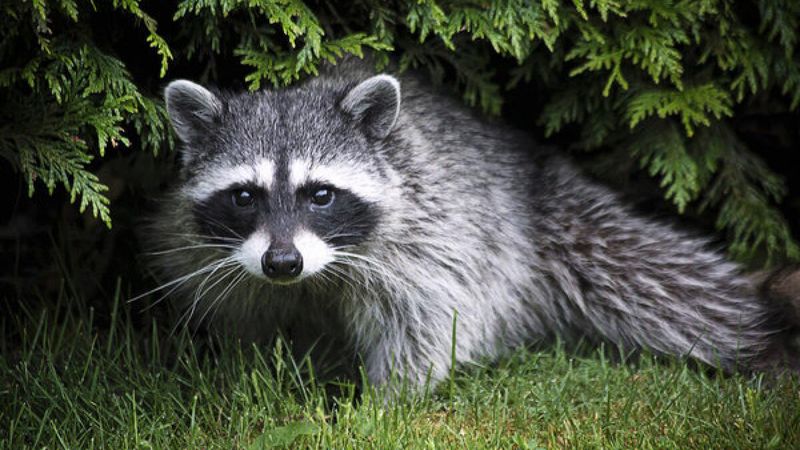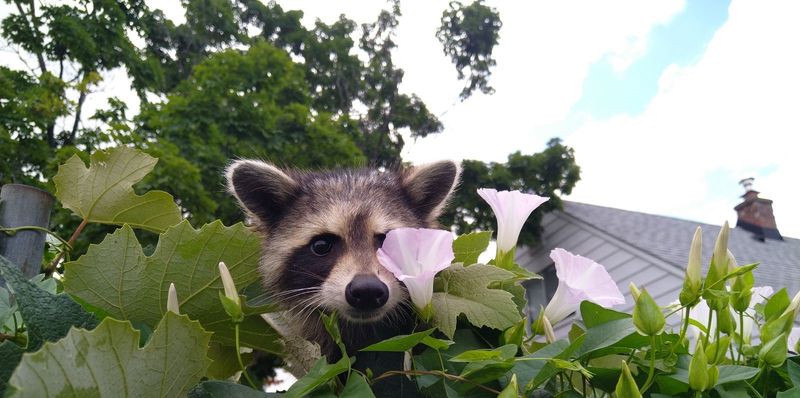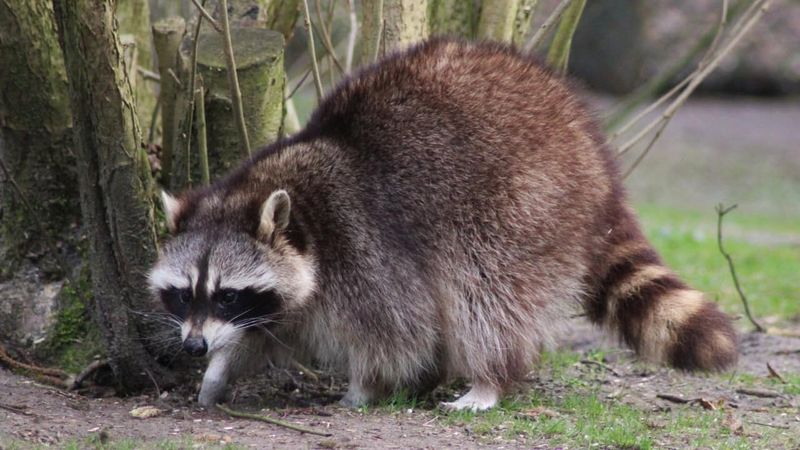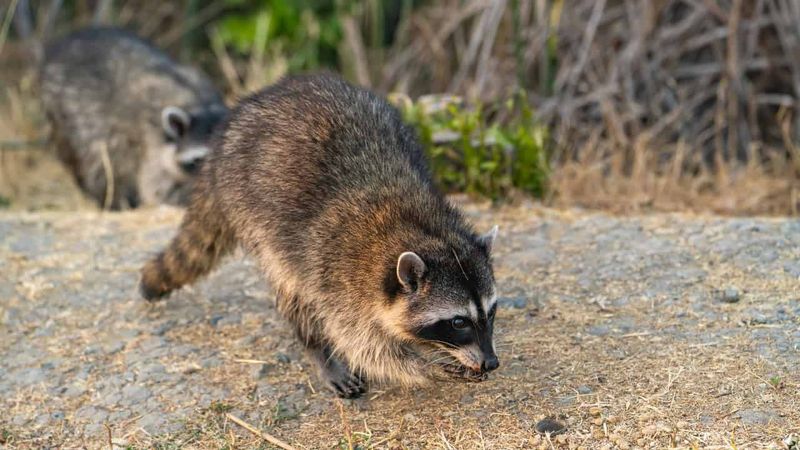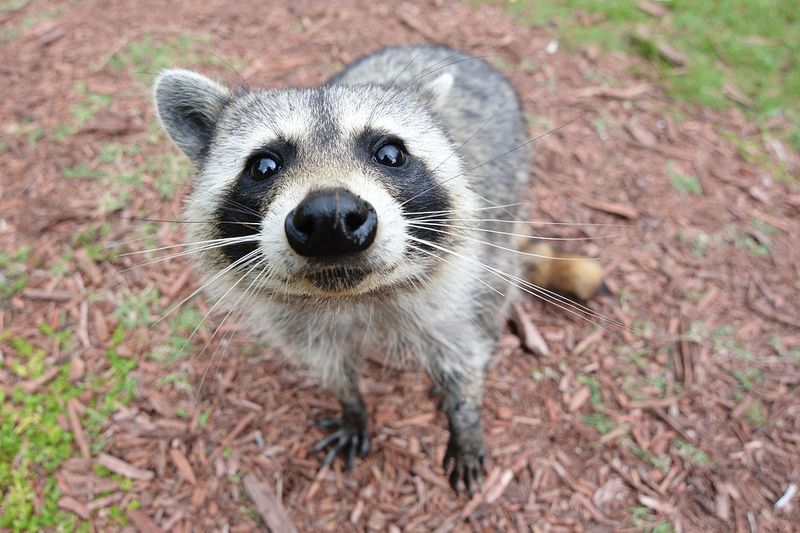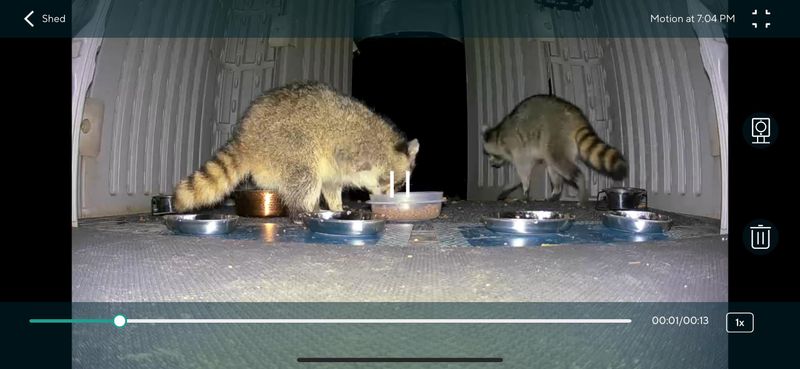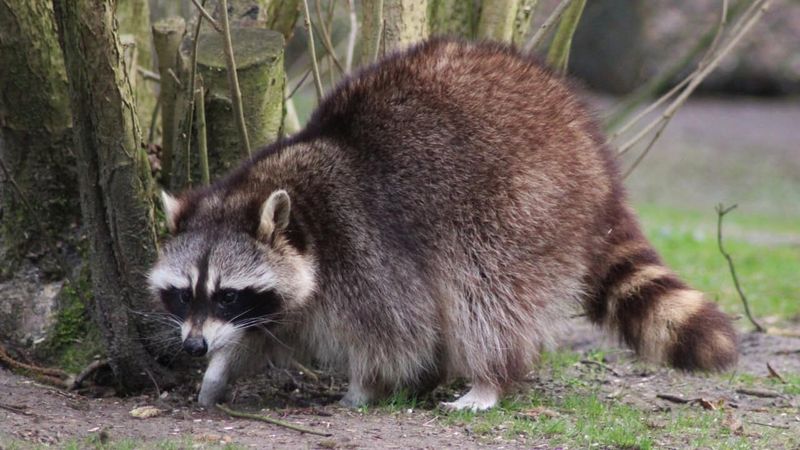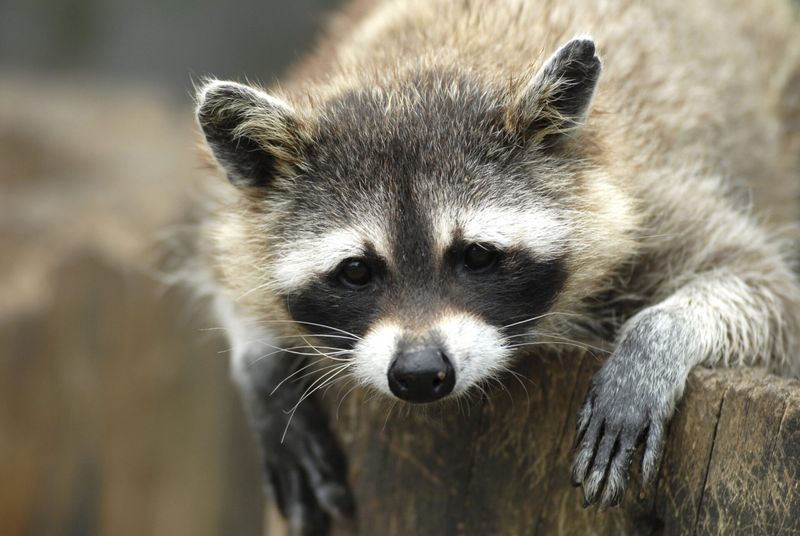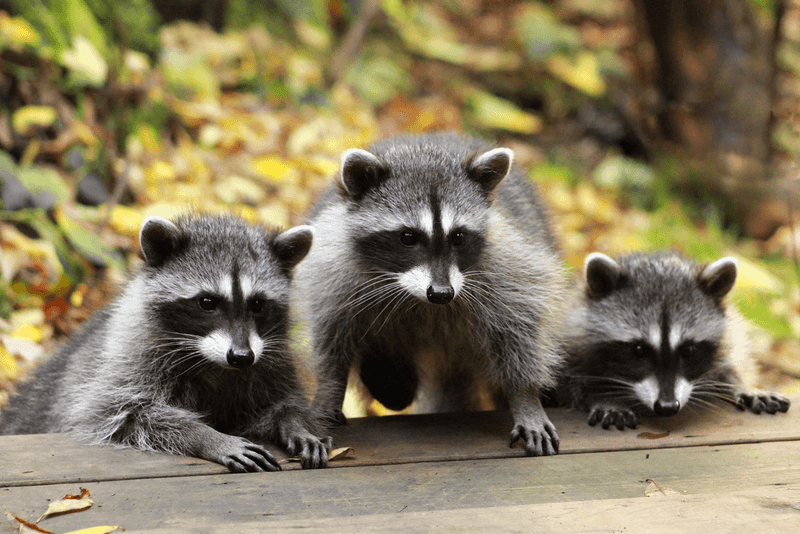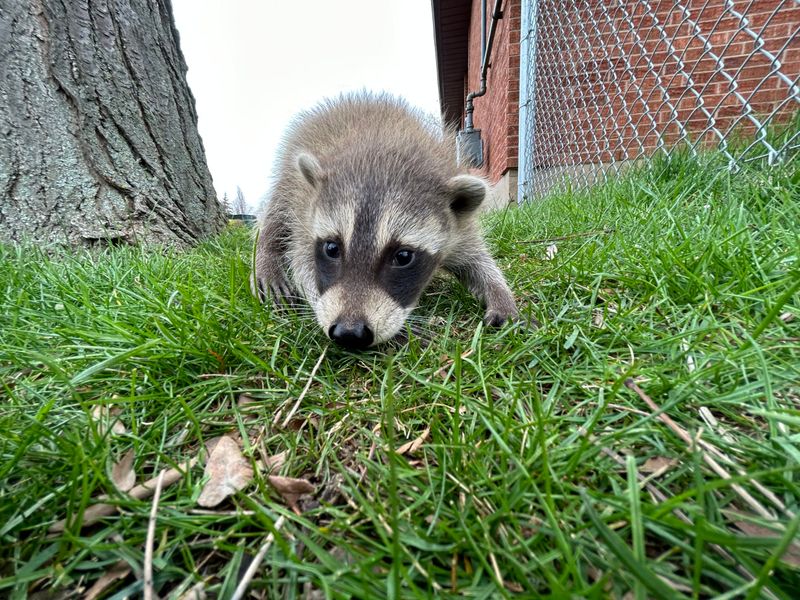If you’ve ever spotted a raccoon in your yard, you might have mixed feelings. But these nocturnal visitors offer surprising perks that go beyond their mischievous reputation.
Let’s explore 15 unexpected benefits of having raccoons as occasional guests in your outdoor space.
1. Natural Pest Control
Raccoons are natural pest controllers, dining on insects, grubs, and small rodents. Their presence can significantly reduce the number of garden pests you might otherwise battle with sprays or treatments. While they dig for these tasty morsels, they keep the ecosystem balanced.
This natural predation helps maintain the health of your plants by reducing pest populations. As a result, you might find yourself using fewer chemicals in your garden, which is a win for any backyard gardener seeking eco-friendly solutions. So, next time a raccoon roams your yard, remember its role in controlling pests naturally.
2. Seed Dispersal
Raccoons play a crucial role in seed dispersal, which is instrumental for plant diversity and growth. As they consume fruits and berries, they inadvertently spread seeds across different areas. This process allows new plants to sprout, enhancing your yard’s biodiversity.
By helping disperse seeds, raccoons contribute to the natural reforestation process. This unintentional gardening service supports a healthier ecosystem and a more vibrant garden. Encouraging these furry visitors can lead to a flourishing yard, teeming with a variety of plants, thanks to their seed-spreading habits.
3. Ecosystem Indicators
The presence of raccoons in your yard can signal a balanced ecosystem, reflecting a thriving environment. These creatures are often found in areas rich with food sources and shelter, indicating that your yard supports various wildlife.
Their visits suggest that your garden is a suitable habitat for a range of species, from birds to insects. This balance is essential for maintaining ecological harmony. So, if you see raccoons around, it’s a positive sign that your yard is a flourishing habitat, supporting biodiversity and ecological health.
4. Soil Aeration
While foraging, raccoons inadvertently aerate the soil, a process beneficial for plant health. As they dig and scratch the ground in search of food, they naturally turn over the soil. This action enhances water absorption and nutrient distribution.
This unintentional tilling improves plant growth by allowing roots to penetrate more easily. Soil aeration is a vital gardening task, often done manually, but raccoons offer this service naturally. By aerating the soil, they improve its structure and fertility, helping your garden flourish with minimal effort on your part.
5. Nutrient Recycling
Raccoon droppings may not be the most glamorous benefit, but they play an essential role in nutrient recycling. As these animals digest their meals, they return vital nutrients to the soil through their waste.
This process acts as a natural fertilizer, enriching the earth and promoting plant growth. Gardeners often spend money on fertilization, but raccoons offer this service for free. Their contributions to soil fertility help maintain a sustainable yard ecosystem, encouraging healthy plant life without added chemical fertilizers.
6. Backyard Entertainment
Raccoons, with their curious and clever nature, provide endless backyard entertainment. Watching them forage or interact with their environment can offer hours of amusement for nature enthusiasts.
Their antics are often harmless and can be quite comical, making them a delightful addition to any wildlife-watching activity. Observing these creatures can be a fun and engaging way to connect with nature. So, next time they visit, grab a seat and enjoy the show as they explore and entertain with their playful behaviors.
7. Educational Opportunities
Having raccoons in your yard presents unique educational opportunities, especially for children. Observing these animals up close provides insights into local wildlife behavior and ecology.
This real-world interaction can spark curiosity and inspire learning about animal habitats and life cycles. It’s a perfect hands-on learning experience, turning your backyard into a living classroom. Encouraging young ones to observe raccoons can foster a deeper understanding and appreciation of nature, making it an invaluable educational tool for families.
8. Biodiversity Boost
Raccoons contribute to a richer biodiversity in your yard. By partaking in the local food web, they support a wide range of species, from pollinators to predators.
Their activities help sustain various ecological relationships, enhancing the complexity and resilience of your garden ecosystem. The presence of raccoons can lead to a more vibrant and balanced environment, fostering a habitat where multiple organisms thrive. This boost in biodiversity is beneficial for maintaining a healthy, dynamic garden space.
9. Pollination Support
While not primary pollinators, raccoons can aid in pollination by carrying pollen on their fur. As they forage and move between plants, they inadvertently transfer pollen, contributing to the pollination process.
This subtle support helps ensure the reproduction of various plant species, enhancing your garden’s floral diversity. By aiding in pollination, raccoons play a part in sustaining the health and vibrancy of your garden’s ecosystem. This unexpected benefit highlights their role in supporting plant life, even if indirectly.
10. Helping Other Species
Raccoons, while searching for grubs, often dig through logs or overturn rocks, exposing hidden food sources. This behavior benefits not just themselves but also birds and other small animals that rely on these resources.
By uncovering food, raccoons help sustain various wildlife, promoting a healthy ecosystem. Their foraging activities ensure that food is available for other species, supporting a diverse range of life in your yard. This collaborative existence enhances biodiversity and provides essential resources for many animals.
11. Nighttime Clean-Up Crew
Raccoons act as a nighttime clean-up crew, scavenging on food waste or compost scraps. This behavior helps reduce organic refuse in your yard, contributing to a cleaner environment.
While it’s important to secure trash cans to avoid unwanted messes, raccoons aid in breaking down and recycling organic materials. Their scavenging activities help manage waste naturally, promoting a more sustainable backyard ecosystem. Embracing their natural habits can lead to a tidier yard and less organic waste.
12. Sharpening Your Garden Habits
Knowing raccoons frequent your yard can encourage you to refine your garden habits. Their presence might prompt better composting practices, more careful storage of pet food, and heightened awareness of landscaping needs.
This mindfulness leads to a more organized and eco-friendly garden space. By adapting to coexist with raccoons, you can enhance your gardening skills and implement more sustainable practices. Their presence acts as a gentle reminder to maintain a thoughtful and well-managed outdoor environment.
13. Scavenger Role
As opportunistic feeders, raccoons help break down the remains of dead animals, playing a vital scavenger role. This natural cleaning process keeps your outdoor space cleaner and reduces the spread of diseases.
By consuming carrion, raccoons contribute to the decomposition process, recycling nutrients back into the ecosystem. This role is essential for maintaining a balanced and healthy environment. Their scavenging activities help control potential health hazards, ensuring that your yard remains a safe and pleasant space.
14. Encouraging Natural Defenses
Having raccoons around can encourage you to use fewer chemical pesticides, as they naturally hunt pests. By relying on raccoons for pest control, you reduce the need for harmful chemicals.
This shift promotes a healthier garden ecosystem and a safer environment for all living things. Embracing natural pest control methods supports sustainability and ecological balance. By allowing raccoons to manage pests, you contribute to a more environmentally friendly garden, fostering long-term health and vitality.
15. Local Wildlife Support
Coexisting with raccoons supports local wildlife, providing a healthy food source for other native species like owls, foxes, and hawks. This interaction supports a thriving ecosystem, where each species plays a vital role.
Raccoons help sustain the food web, ensuring that diverse wildlife can flourish in your yard. By fostering an environment where raccoons and other animals can coexist, you contribute to the health and diversity of local ecosystems. This support strengthens the resilience and sustainability of the natural world around you.
